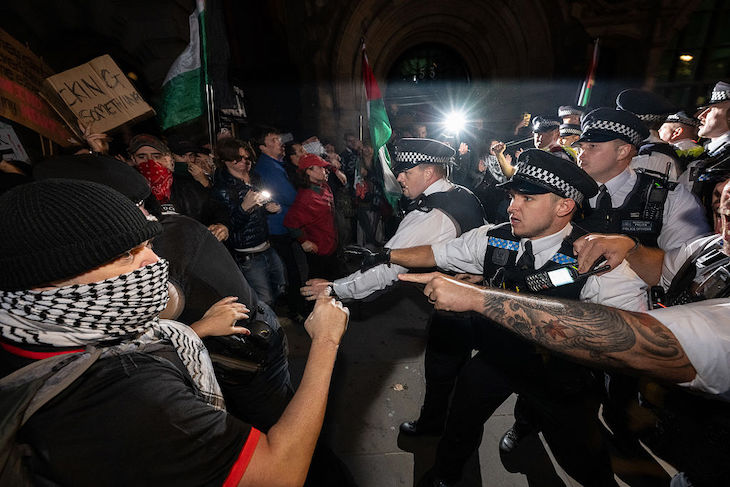When Vladimir Putin and Donald Trump meet in Alaska today, it will mark their first encounter since Russia’s invasion of Ukraine on 24 February 2022. Although the talks are likely to be dominated by questions of a ceasefire, possible division of territory, and how the three-year war will conclude, North Korea will likely be more than a small elephant in the room. Amidst amplifying ties between Moscow and Pyongyang, neither Putin nor Kim Jong-un looks likely to abandon the other in the short term, irrespective of whether any piece of paper – however preliminary – emerges from the Last Frontier.
On Tuesday, Russian and North Korean state media announced that Vladimir Putin and Kim Jong-un had exchanged a telephone call prior to today’s summit with Trump. North Korean state media highlighted how both leaders pledged to ‘strengthen cooperation’ between the two countries, with Kim affirming that North Korea ‘will always remain faithful to the spirit of the DPRK-Russia [mutual defence] treaty’ signed last year. The Kremlin elusively added that Putin shared information about his upcoming talks with Trump with his North Korean ally: no details were provided.
Kim has more confidence that his partnership with Putin is unlikely to evaporate
North Korean state media rarely reports on telephone calls, but this one was hardly an insignificant act of semantic symbolism. Rather, it was a clear affirmation on the part of both Pyongyang and Moscow that their rapprochement is not abating. This year has witnessed numerous visits by Russia’s Foreign Minister, Sergey Lavrov, as well as Putin’s top aide, Sergei Shoigu, to Pyongyang for ‘strategic dialogues’ with senior North Korean officials, including the Supreme Leader himself. In April, North Korea and Russia openly admitted what the world had long known, namely, the deployment of an estimated 14,000 North Korean troops since October 2024 to aid Russia’s fight against Ukraine. It was then no surprise that Putin lauded the ‘heroism and selflessness’ of the North Korean soldiers, who have been little more than cannon fodder, all the while offering lessons for the regime in Pyongyang as to the realities of a modern war.
Since taking office in January 2025, the relationship between Trump and Putin has fluctuated between bonhomie and hostility, which Pyongyang will have been keeping a close eye on. When Sergei Shoigu, Secretary of Russia’s State Council, visited North Korea in March to meet Kim Jong-un, Kim effusively stressed how it was his regime’s ‘resolute will’ to ‘support Russia in the struggle for defending its national sovereignty’ both now and in the future. At the time, the not impossible prospect of Putin warming to Trump – and vice versa – and potentially dispensing with its newfound ally would have been in the back of Kim’s mind.
Five months later, and Kim has more confidence that his partnership with Putin is unlikely to evaporate, whenever and however the war in Ukraine ends. After all, it is not just 12 million rounds of artillery, ballistic missiles, and troops which have been sent in Russia’s direction in exchange for cash, oil, and Kim’s most-coveted missile and military technology. In gross violation of United Nations sanctions, North Korea has continued to dispatch labourers and construction workers to Russia, a flow of people which predates Russia’s invasion in 2022. These cheap workers endure slave-like conditions, are kept under tight surveillance to prevent them from being ‘contaminated’ by non-North Korean ideology and fulfil a clear labour shortage for Russia. Additional labour is too good an offer for Putin to refuse.
The parallels between North Korea and Russia will not go unnoticed by Trump. Both countries show no remorse in violating international sanctions and actively support each other in their sanctions-flouting behaviour. In December 2017, Russia and China supported United Nations Security sanctions calling for the return of all North Korean workers overseas within 24 months, but rather than practise what they preach, Moscow and Beijing retained and accepted more.
Moreover, just as Kim Jong-un told the North Korean party and people in December 2019 that they must learn to live with sanctions, Putin has paid no attention to the international community’s justified sanctioning of Russia. And even if the so-called Donetsk and Luhansk ‘republics’ end up on the negotiating table in Alaska, we must not forget that, bar Russia and Syria, the only other country to recognise the independence of these Russian-annexed areas is North Korea.
North Korea also offers an example of just how presidential-level summitry involving Donald Trump can fare. Three meetings between Kim Jong-un and Trump across 2018 and 2019 did little to advance Pyongyang’s denuclearisation, not least given the North’s utter lack of interest in doing so. In fact, North Korea only became more determined to acquire more and better weapons. What the talks did highlight, however, is that for all the optics of diplomacy, it takes time to find – let alone strike – a mutually-acceptable deal in international relations, especially with an adversary.
Ultimately, Trump wants the Nobel Peace Prize, but whether he will achieve it for ending the war in Ukraine, the conflict in the Middle East, or resolving the North Korea problem is the million-dollar question. If today’s summit – what Trump has called a ‘feel out meeting’ – does little to change the status quo, as many expect, he might then try his luck with Little Rocket Man. Yet with Russia firmly supporting an emboldened Kim, the North Korean leader will likely refuse any offers to come to the negotiating table.
Just as Kim did not want to abandon his nuclear weapons for all of Trump’s calls, Putin does not want to lose the Ukraine war. And it is overcoming this gulf in interests that is the true art of the deal.







Comments